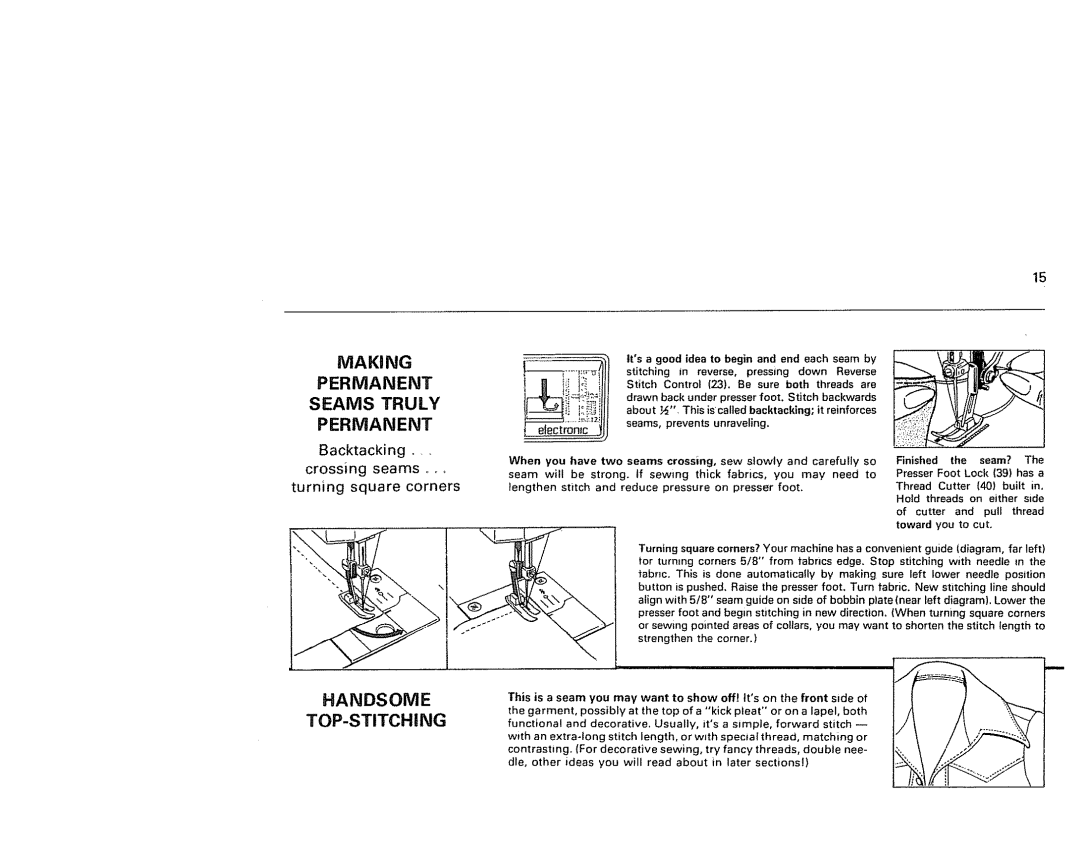
15
MAKING
PERMANENT SEAMS TRULY PERMANENT
Backtacking..,
crossing seams o_o
turning square corners
It's a good idea to begin and end each seam by
stitching in reverse, pressing down Reverse Stitch Control (23). Be sure both threads are
drawn back under presser foot. Stitch backwards about _", This iscalled backtacking; it reinforces seams, prevents unraveling.
, electronic ,,jjj
When you have two seams crossing, sew slowly and carefully so seam will be strong, if sewing thick fabrics, you may need to lengthen stitch and reduce pressure on presser foot.
Finished the seam? The
Presser Foot Lock (39) has a
Thread Cutter (40) built in, Hold threads on either side of cutter and pull thread toward you to cut.
HANDSOME
TOP-STITCHING
Turning square corners? Your machine has a convenient guide (diagram, far left) for turning corners 5/8" from fabrics edge. Stop stitching with needle tn the fabric. This is done automatica!ly by making sure left lower needle position button is pushed. Raise the presser foot. Turn fabric. New stitching line should align with 5/8" seam guide on side of bobbin plate(near left diagram), Lower the presser foot and begin stitching in new direction. (When turning square corners or sewing pointed areas of collars, you may want to shorten the stitch length to strengthen the corner.)
This is a seam you may want to show of!! tt's on the front side of the garment, possibly at the top of a "kick pleat" or on a lapel, both
functional and decorative. Usually, it's a simple, forward stitch m with an
die, other ideas you will read about in later sections)
